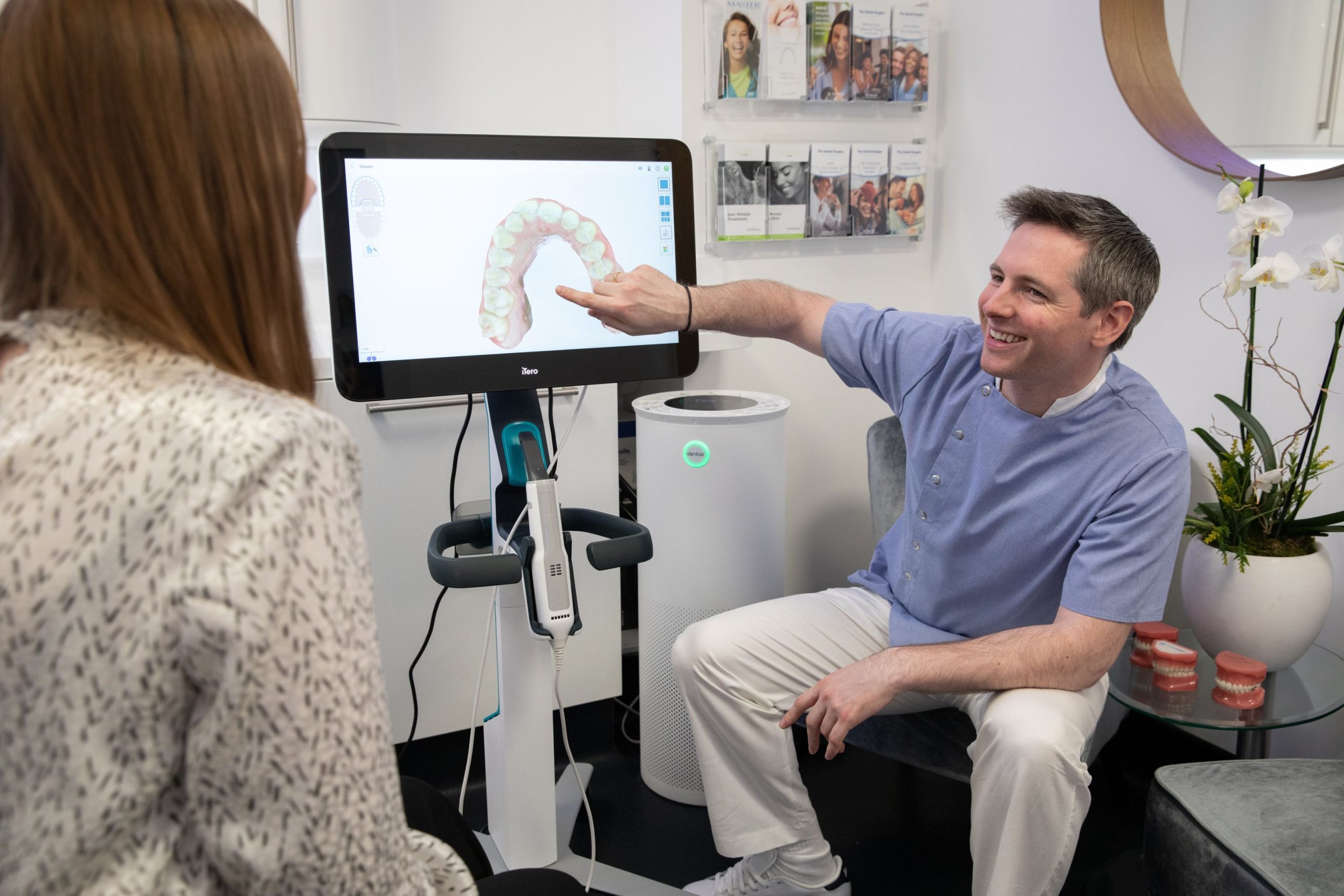-
Categorised as:
- Periodontics
- Dental Hygiene
- General Dentistry
Gum Disease And High Blood Pressure: A Layman’s Guide
Gum disease has been linked with many seemingly unrelated conditions in recent years, chief among them high blood pressure.
In this post, we will look at what gum disease is, the links associating it with blood pressure problems and also some of the other conditions that have been linked to gum disease.
What we would also say is that irrespective of any other associated issues, gum disease in itself is a problem simply because of the effect it has on your oral health.
In other posts we have explored the difference between gingivitis and periodontitis (the two forms of gum disease). Gingivitis leads to bleeding gums and halitosis and can go on to become periodontitis, where there is erosion of the gum and, in time, the potential for teeth to become loose and fall out.
Anyone who suspects they have gum problems should see a dentist for a thorough check up, irrespective of what associated conditions could become problems in future.
Gum Disease And Blood Pressure – The Findings And What They Mean
A study in 2018 found that gum disease may be a factor in high blood pressure, affecting both a patient’s ability to achieve healthy blood pressure targets and impacting on the efficacy of medications in treating high blood pressure.
This was a thorough study involving some 3,600 people diagnosed with high blood pressure and published in the Journal of Hypertension.
The key findings of this study showed that those with gum disease were 20% less likely to achieve healthy blood pressure targets and were also less likely to respond to blood pressure medication.
Of the findings, lead author Dr. Davide Pietropaoli, a doctor of dental health at the University of L’Aquila in Italy, said: “Patients with high blood pressure should be aware that good oral health may be just as important in controlling the condition as are several lifestyle interventions known to help control blood pressure, such as a low-salt diet, regular exercise and weight control.”
Dental Health Is ‘Indispensable’
Dr. Pietropaoli added that dental health is ‘indispensable’ to overall health. A slightly earlier study, the results of which were published in 2017, also highlighted the reverse effect – how tackling gum disease can help reduce blood pressure to healthier levels. This means that the effect works both ways – gum disease is linked with high blood pressure and tackling gum disease could then help restore blood pressure to normality.
In this earlier study, which focused on 107 men and women in China with pre-existing high blood pressure and moderate to severe gum disease, a clear link was established. Half the group were given standard treatment – teeth cleaning with plaque removal below the gum line; the other half more intensive treatment with cleaning down to the roots of teeth, antibiotics and even teeth removal in some cases.
Intensive Treatment
Within a month there was a clear difference between the groups, those with the intensive treatment having seen far greater drops in blood pressure. After six months, systolic blood pressure was nearly 13 points and diastolic blood pressure was almost 10 points lower in the intensive treatment group. This shows both that the link between gum disease and high blood pressure has been demonstrated through various studies, and that the level of treatment also matters. It is in everyone’s interest to practice the best dental care they can at home, but the significant improvements to health only came within the group who had a thorough, professional clean to root level.
Why High Blood Pressure Matters
Gum disease might, mistakenly, feel like something that can be lived with if the only immediate symptoms are bleeding gums when brushing and perhaps some inflammation.
The longer term implications should encourage anyone to get any concerns checked out. The potential for high blood pressure is chief among these concerns.
High blood pressure is linked with life-threatening conditions due to it putting extra strain on the blood vessels, heart and other organs including the brain, kidneys and eyes.
The following conditions may be all the more likely if you have high blood pressure:
- heart disease
- heart attacks
- strokes
- heart failure
- peripheral arterial disease
- aortic aneurysms
- kidney disease
- vascular dementia
The NHS site goes on to say that even reducing blood pressure a small amount can lower the risk of these conditions. Clearly, if tackling gum disease can help lower high blood pressure it could also reduce the patient’s risk of potentially fatal health conditions.
Side Effects Of Gum Disease
Again, according to the NHS, a worrying list of conditions are linked to gum disease, these including strokes, diabetes and heart disease. There have also been suggestions that gum disease can be a factor in problems linked with pregnancy and, as referenced in a 2019 article in New Scientist, dementia.
Chief Executive of the British Dental Health Foundation, Dr Nigel Carter, states: “The link between oral health and overall body health is well documented and backed by robust scientific evidence.”
How Common Is Gum Disease And High Blood Pressure?
Both gum disease and high blood pressure are common conditions. If we look at NHS statistics, more than 1 in 4 UK adults have high blood pressure although, as they point out, many will be unaware they have the condition. Gum disease is even more prevalent in the UK adult population, the NHS site suggests that most UK adults have gum disease to some degree, although most will be in the early stage, gingivitis.
When conditions are so common it is easy to believe that they cannot be all that serious, a “safety in numbers” mentality can set in. If most adults have gum disease, it can’t be that bad, can it?
Sadly, safety in numbers doesn’t have any actual bearing on how serious a condition can be.
Advanced Periodontitis
It is true that the early stages of gum disease are far less of a problem than fully advanced periodontitis; similarly, blood pressure that is slightly high is less a case for concern than blood pressure well above safe limits.
As a patient, though, that is largely irrelevant as it is impossible to know just how advanced your gum disease is without seeing a dental professional or how high your blood pressure is without having a test.
Regardless of how common either condition may be, if you have gum disease or high blood pressure then you need to take steps to address them.
Do you have a specific question?
If you have any concerns over your oral health, please get in touch with us today.



